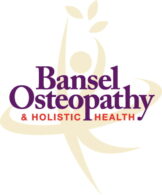The simple answer to this question is that most of us actually don’t know and have never even checked! It is thought that 1 in 5 of us has undiagnosed high blood pressure (defined as 140/90mmHg or higher), which if left, could cause major health issues.
High blood pressure is considered the third biggest risk factor for all diseases. It is a leading cause of stroke, heart attack, heart failure and kidney damage in the UK and during our lifetime, all of us will encounter this silent killer in some form.
The good news is that high blood pressure is one of the most preventable and treatable of health conditions.
Here are my top 5 tips to help:
1. Reduce your stress levels!
Stress is one of the main causes of high blood pressure so focus on reducing your stress by:
- Trying to resolve your source of stress.
- Regularly doing breathing exercises and/or meditating.
- Spending time in nature,
- Having some ‘me time’, relaxing doing things you love.
- Taking magnesium supplements or an adrenal balancer.
- Getting enough sleep.
- Getting regular exercise.
2. Kick the habit and stop smoking!
Studies have shown that nicotine and other chemicals can cause arteries to constrict, which in turn means your heart has to work harder to pump your blood around your body which increases your blood pressure. Speak to your health professional about how to stop smoking.
3. Be more active!
Try and aim to do a form of moderately intense cardio you enjoy for 30 minutes a day, five days a week or a vigorously intense cardio session for 20 minutes a day, 3 days a week. You should also try to do 8 to 10 strength-training exercises (8 to 12 repetitions of each) at least twice a week.
4. Reduce your cholesterol!
Having high cholesterol can cause fatty deposits to accumulate on the inside of your arteries. As a result, your arteries can narrow, making your heart work harder to pump blood around your body and your blood pressure increases as a result.
Here are some dietary changes that can lower your cholesterol:
- Reduce your saturated and trans fat intake.
- Increase foods with omega-3 fatty acids in your diet, for example salmon, mackerel, herring, walnuts and flaxseeds. You can also take an EPA/DHA supplement if you are not on blood thinners.
- Increase your soluble fibre. Soluble fibre can reduce the absorption of cholesterol into your bloodstream. Soluble fibre is found in such foods as oatmeal, kidney beans, brussel sprouts, apples and pears.
- Increase plant sterols and stanols in your diet, these both help reduce cholesterol.
5. Improve your diet.
- Reduce salt, red meat, processed meats, sugary drinks, alcohol and caffeine in your diet as these all increase blood pressure.
- Increase your intake of beetroot, raw beetroot is much more effective in reducing blood pressure than the cooked option and drinking 1L of raw beetroot juice a day has been shown in clinical trials to have the same effect as taking pharmacological interventions! Beetroot is good in reducing blood pressure as the nitrates present get converted to nitric oxide which help to control blood pressure, beetroot also contains potassium.
- Increase leafy greens in your diet. Spinach, rocket, kale, swiss chard, cabbage all contain nitrates, potassium, magnesium, and calcium, which naturally lower blood pressure.
- Increase your fruit intake, particularly bananas for their potassium content and berries for their high levels of flavonoids which both help lower blood pressure. In recent trials, drinking fresh watermelon juice has also been shown to reduce blood pressure.
- Include unsalted nuts and seeds in your diet. Nuts contain the amino acid L-arginine which makes nitric oxide and helps blood vessels relax. While all nuts are a healthy choice, both almonds and pistachios also contain potassium, magnesium, and calcium.
- Include dairy in your diet. The calcium and potassium it contains, helps to reduce blood pressure.
If you are concerned about your blood pressure, ask one of us to take it the next time you are in the clinic or consult your GP.

